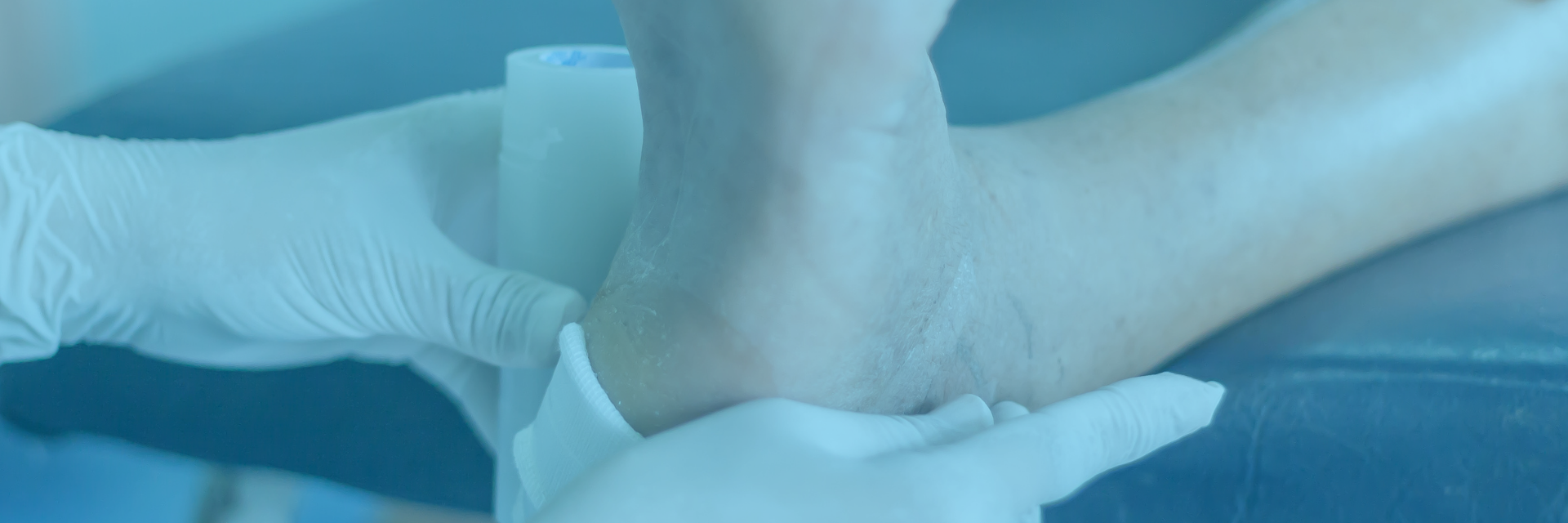
Diabetic Limb Salvage
Diabetes, or hyperglycemia, is a condition that affects over 25 million Americans of all ages. As many as one in three adults in the United States will have high blood sugar levels, which indicates diabetes. If a person with diabetes does not normalize their blood sugar levels, the body may become susceptible to infections due to a decrease in immune system function. This can affect the feet in particular due to lack of circulation and loss of feeling.
As a result of diabetes, the feet can develop several different problems that must be treated by a medical professional in order to prevent permanent damage. A person with diabetes has a higher risk of getting wounds that do not heal, infections, and potentially gangrene, which could lead to amputation if not treated properly. Everyday activities like walking can cause issues in the feet of a person with diabetes, which is why having a podiatrist is essential. When these issues arise, it is imperative that you make an appointment with our podiatrist in Little Neck, Great Neck Family Foot Care.
Here are some proper foot care suggestions to follow:
- Check feet daily to detect foot problems, changes, or injuries early on and get them treated.
- Keep feet clean, warm, and dry (thoroughly dry between toes to prevent fungal or bacterial infection).
- Wear comfortable shoes and do not wear the same pair every day (look for roomy toe boxes, leather uppers, and shoes that do not pinch, rub, or cause pressure; avoid stiff shoes and gradually break-in new footwear).
- Always wear clean, dry socks without tears or irritating seams (thin cotton is absorbent and helps keep feet dry).
- Do not leave feet exposed or unprotected (sleep in loose socks; do not wear flip flops or sandals; do not go barefoot).
- Never expose feet to heat or high temperatures (burns can occur due to loss of feeling).
- Maintain better foot circulation (do not smoke; avoid stockings or socks with tight elastic bands; do not cross feet or legs when sitting).
- Treat the feet gently (pat dry; avoid cutting or tearing the skin).
- Carefully shape toenails straight across with an emery board (avoid ingrown toenails).
- Do not use over-the-counter foot products such as antiseptic solutions, plasters, tapes, or anything sticky (they can damage the skin and lead to wounds).
- Use moisturizer to keep skin supple (except between toes).
- Do not treat corns or calluses at home; see our podiatrist in Little Neck for care.
It is important that a person with diabetes seek podiatric care on a regular basis to prevent foot problems that can easily get worse. Great Neck Family Foot Care will ensure that your feet will be getting the most qualified and proper treatments possible, to prevent or reduce damage to your feet. If you or someone you know is looking for a podiatrist in Little Neck, contact us at Great Neck Family Foot Care today to get started.



